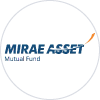
UTI Mutual Fund
₹ 393334.93 Cr
AUM
64
Total Schemes

AUM
Total Schemes

Min. investment
5 Year Returns

Min. investment
5 Year Returns

Min. investment
5 Year Returns

Min. investment
5 Year Returns

Min. investment
5 Year Returns

Min. investment
5 Year Returns

Min. investment
5 Year Returns

Min. investment
5 Year Returns

Min. investment
5 Year Returns

Min. investment
5 Year Returns

Min. investment
5 Year Returns

Min. investment
5 Year Returns







































The UTI Mutual Fund was registered with the SEBI on February 1st 2003.
Yes, UTI is registered with SEBI under registration number MF/048/03/01.
One of the reputable AMCs in India is the UTI mutual fund. All mutual fund houses are subject to stringent SEBI regulation. But when it comes to market-linked products like mutual funds, no asset management firm can ensure the protection of capital. It is preferable to assess your financial objectives, level of risk tolerance and investment horizon before selecting a fund.
You can get tax-benefits under section 80C by investing in ELSS mutual funds offered UTI Mutual Fund.
If you have invested in any UTI Mutual Fund scheme through the Bajaj Finserv platform, you can stop or cancel an SIP by logging into your account on the Bajaj Finserv platform and app without hassle.
If you have invested in any UTI Mutual Fund scheme through the Bajaj Finserv platform, you can get your statement online on the Bajaj Finserv website or app.
If you have invested in a UTI Mutual Fund scheme through the Bajaj Finserv platform, you can easily increase your SIP amount through the Bajaj Finserv website or app.
If you have invested in a UTI Mutual Fund scheme through the Bajaj Finserv platform, you can easily redeem it through the Bajaj Finserv website or app.
No, UTI Mutual Fund is not a government company; it is a professionally managed investment company. While it has historical ties to the government, UTI Mutual Fund operates as an independent entity in the financial market.
Determining the "best" UTI scheme depends on individual investment goals, risk tolerance, and financial circumstances. Investors should assess factors like fund performance, investment objectives, and expense ratios when selecting a UTI scheme. Consulting with a financial advisor can help identify the most suitable UTI scheme based on specific investment needs.
The return rate of UTI SIP (Systematic Investment Plan) varies depending on the specific scheme chosen and market conditions. Historically, UTI SIPs have delivered competitive returns over the long term, but past performance is not indicative of future results. Investors can check the historical performance of UTI SIPs and consult with financial advisors for expectations regarding returns.
The minimum investment amount in UTI Mutual Fund schemes varies depending on the specific scheme and type of investment (lump sum or SIP). Typically, the minimum initial investment for most UTI Mutual Fund schemes ranges from Rs. 500 to Rs. 5,000. Investors should refer to the scheme's offer document or consult with the fund house for specific minimum investment requirements.
Investors can initiate a withdrawal from UTI Mutual Fund by submitting a redemption request through various channels such as online portals, mobile apps, or physical forms. The redemption proceeds are usually credited to the investor's registered bank account within a specified period. It's important to note any applicable exit load, taxes, and timing restrictions associated with the redemption process.
UTI Infrastructure Fund is a sectoral equity scheme that invests primarily in companies linked to India’s infrastructure growth story. The fund has an asset base of around Rs. 1,647.83 crore and an expense ratio of 1.94%. Over the past three years, it has delivered a CAGR of 32.11%. The minimum investment amount is Rs. 1,500.
UTI Core Equity Fund belongs to the large and mid-cap category, investing in companies across both segments to balance growth and stability. The fund manages assets worth approximately Rs. 1,925.88 crore, with an expense ratio of 1.31%. Over three years, it has achieved a CAGR of 29.53%. The minimum investment required is Rs. 1,500.
UTI Mid Cap Fund focuses on medium-sized companies with strong growth potential. The fund has assets under management (AUM) of about Rs. 8,881.36 crore and an expense ratio of 0.8%. It has recorded a three-year CAGR of 28.54%. Investors can start with a minimum investment of Rs. 500.
UTI Transportation & Logistics Fund is a sectoral fund investing in companies from the automobile, transportation, and logistics sectors. It manages assets worth around Rs. 2,348.16 crore and carries an expense ratio of 0.83%. The fund has posted a three-year CAGR of 28.28%. The minimum investment starts from Rs. 500.
UTI Banking and Financial Services Fund targets the banking, finance, and insurance sectors. It holds assets worth approximately Rs. 911.68 crore with an expense ratio of 1.18%. The fund has registered a three-year CAGR of 26.25%. Investors can start investing with a minimum of Rs. 5,000.
UTI Value Opportunities Fund invests in companies that are undervalued but hold strong long-term growth potential. The fund manages assets of about Rs. 7,539.86 crore with an expense ratio of 1.11%. Over the last three years, it has achieved a CAGR of 24.04%. The minimum investment amount is Rs. 500.
UTI Hybrid Equity Fund is an aggressive hybrid scheme that invests in both equity and debt to offer a mix of growth and stability. It manages assets worth Rs. 4,788.04 crore and has an expense ratio of 1.3%. The fund has produced a CAGR of 23.55% over three years. The minimum investment required is Rs. 500.
UTI Dividend Yield Fund invests mainly in companies known for regular dividend payouts. The fund’s total assets stand at about Rs. 3,108.89 crore, and it has an expense ratio of 1.44%. Over a three-year period, it has generated a CAGR of 23.49%. The minimum investment amount is Rs. 5,000.
UTI Long Term Equity Fund (Tax Saving) is an ELSS scheme that offers tax benefits under Section 80C while investing in diversified equities. It manages assets worth around Rs. 3,141.2 crore and has an expense ratio of 0.85%. The fund has delivered a three-year CAGR of 22.53%. The minimum investment is Rs. 500.
UTI Nifty 50 Index Fund is a passive index fund that mirrors the Nifty 50 Index to generate returns in line with market performance. It has assets worth Rs. 12,092.48 crore and an expense ratio of 0.21%. The fund has achieved a three-year CAGR of 20.76%. Investors can begin with Rs. 1,500.